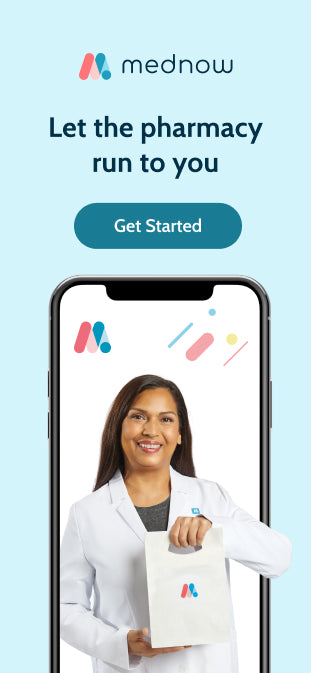We’re very fortunate to live in a time when medical science is advancing in leaps and bounds. Diseases and injuries that might have been deadly just a few decades ago are now manageable with medication and non-medication based treatment. However, as far as we’ve come, very often, patients and doctors walk a fine line between medication adherence and non-adherence.
On the one side of the medication adherence and non-adherence equation, we have vastly improved health outcomes. On the other, patients tend to fall through the cracks. Here’s what you need to know.
What Is Medication Adherence?
The first thing we need to cover is medication adherence. In a nutshell, medication adherence is defined as how a patient takes the medication compared to how it was prescribed. That is, if you take it exactly as prescribed, the correct amount, at the correct time of day, and at the correct frequency, you would be adherent to your medication.
When doctors and other medical professionals prescribe medication to treat a condition, they take various factors into account, including what the condition is, the patient’s height and weight, other medications and treatments they are taking and more.
The dosage for each patient is carefully calculated based on those parameters and the drug manufacturer’s recommendations. Sometimes, dosages may be adjusted based on your reaction to them, but that should only be done by your doctor.
If you don’t take your drugs as directed by your doctor, your medications may not work as they are intended to – or at all. Depending on the condition you are treating, this kind of non-adherence could be dangerous or even fatal.
Impact of Non adherence to the Medication
Even now that you know what the medication adherence definition is and why it might be dangerous not to follow doctor’s orders, you might still think this is a minor issue. However, that’s not true. In fact, the statistics related to the consequences of medication non-adherence are scary:
- Between 30 and 50% of all treatment failures for chronic disease are caused by medication non adherence
- Non-adherence is a contributing factor in up to 640 premature deaths of Canadians with ischemic heart disease each year.
- Up to 50% of patients being treated for high cholesterol with statins have a 25% chance of dying within a year if they stop their treatment
- Over 40% of cancer patients in the UK don’t take their medication as prescribed
- Only half of all patients who are prescribed chronic medication in the developing world comply with their treatment protocols
- Diabetes medication non compliance is as high as 98% in the U.S. and is the number one cause of serious illness and death in people with diabetes in America
- Non compliance with hypertension medication protocols is the number one cause of heart attack and stroke
- Up to 59% of patients prescribed antipsychotic medications take them infrequently or not at all
As you can see from the statistics above, medication non-compliance is not without consequences. In fact, very often, patients not taking the medication they are prescribed as it is prescribed can cause serious long term health problems or even death.
Barriers to Medication Adherence
The truth is, so far, we’ve looked primarily at patient adherence in the context of deliberate non-compliance, but very often, that is not the case.
Lack of Knowledge
In some cases, medication non-adherence is simply caused by a lack of understanding. Patients don’t understand the consequences of non-compliance, so they make changes to their treatment. This is one of the leading causes of the rise of multidrug-resistant tuberculosis (MDR TB) in sub-Saharan Africa. Patients do not understand the critical importance of completing their treatment, so they stop before it is finished and the bacteria start to grow again, this time resistant to the previous treatment.
Doctors and medical professionals need to do more to ensure that patients understand the importance of completing a course of treatment.
Affordability
In many cases, patients cut doses or stop taking their medication because they simply cannot afford to buy it. In this case, medication non-adherence is not willful but enforced by circumstances.
One big example of this is diabetes in the U.S. The high cost of insulin in the United States means it is unaffordable for patients who do not have health insurance that covers chronic medication. In fact, in the richest country in the world, it’s not unheard of for diabetic people to die because they can’t afford insulin.
Accessibility
In some cases, medication adherence or the lack thereof isn’t because patients don’t know or they can’t afford their medication, it’s simply hard to access. Examples of this might be seniors or people with disabilities who have to rely on others to fill their prescriptions. In many cases, online prescription delivery services such as Mednow can help to fill the accessibility gaps for patients.
Lack of Trust
Sometimes, patients have simply lost faith in the healthcare system, for one reason or another. These patients have the means to access medication, but they choose not to take it. Sometimes, this kind of medication non-compliance is because of negative side effects from medications, but sometimes it’s because of health disinformation. Whatever the reason, the effects can be serious.
Tips for Remembering to Take Your Prescriptions and Keeping Track of Them
Now that you know how impactful medication adherence and non-adherence can be, the next step is to make sure you don’t fall into this trap. Here are a few tips to help you remember to fill your prescriptions and take your medication as directed:
- Set a time to take your medication every day – set an alarm on your phone if you need a reminder
- Keep your medications in a frequently accessed place, and use your daily routine to remind you to take them – for instance, if your medication must be taken with food, consider having a small container in your kitchen that can hold your pill bottles so you’re visually reminded of them when you are preparing your meals or eating. Just be cautious to place medicine away from children and pets.
- Use a weekly calendar to keep track of what you need to take and when you need to take them
- Use a pill organizer. There are many different types of organizers but commonly they will have slots for AM/PM with or without the days of the week. You can purchase the kind that works best for your medication routine.
- Set a specific day to refill your pill organizer
- Always be sure to pack your medication when you are traveling, and if you’re flying, keep them in your carry on – lost luggage you can live without, but skipping your medication is not okay!
- Consider investing in timer caps if you often forget to take your medication – they will give an alarm when you need to take your next dose
Once your medication routine becomes a habit, it will be easier to remember to take your medication when you need to. So do what it takes until taking your medication becomes part of your routine.
Conclusion
When it comes to successfully treating and managing any condition, medication adherence and non-adherence is one of the most important factors that determine patient outcomes.
Medication adherence alone could keep countless people out of emergency rooms and ICUs every year. So if you’re not taking your medication, whatever your reason, now is the time to make a change.
Sticking to your medication regimen is one of the best things you can do for your long term health. So make it a priority to follow doctor’s orders, and if there’s any reason you can’t, speak to your medical team. There might be cheaper drug options or programs to reduce cost, or your dosage could be adjusted to take care of side effects.
This article offers general information only and is not intended as medical or other professional advice. A healthcare provider should be consulted regarding your specific situation. While the information presented is believed to be factual and current, its accuracy is not guaranteed and it should not be regarded as a complete analysis of the subjects discussed. All expressions of opinion reflect the judgement of the authors as of the date of publication and are subject to change. No endorsement of any third parties or their advice, opinions, information, products, or services is expressly given or implied by Mednow or its affiliates.
Commencer
